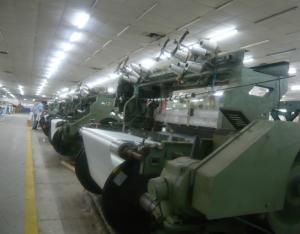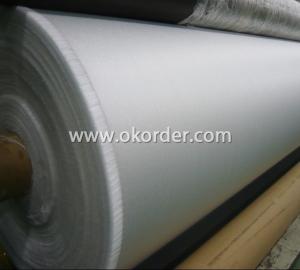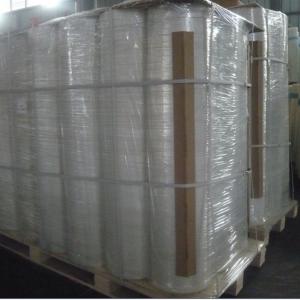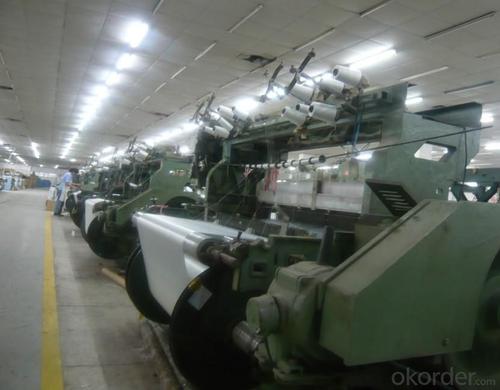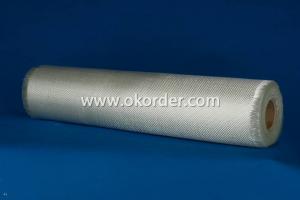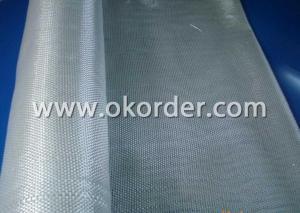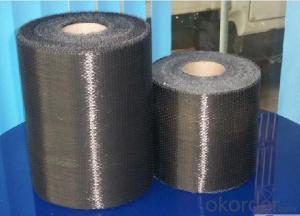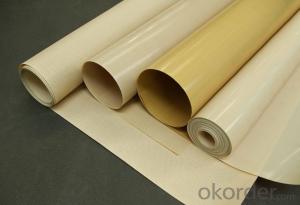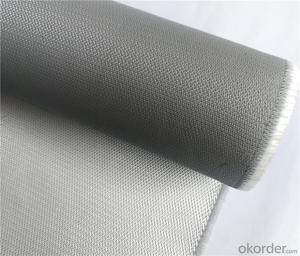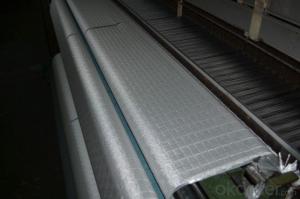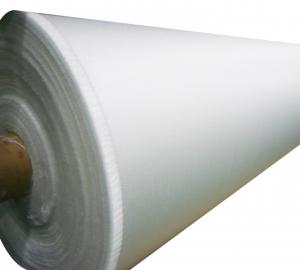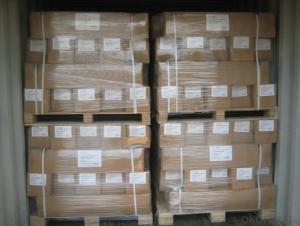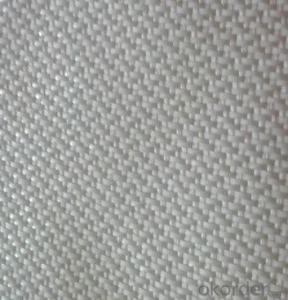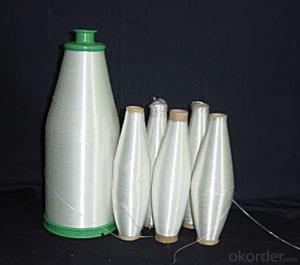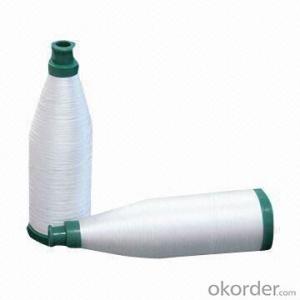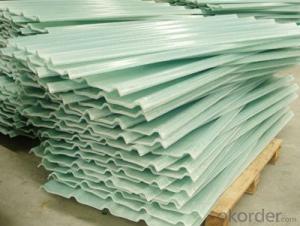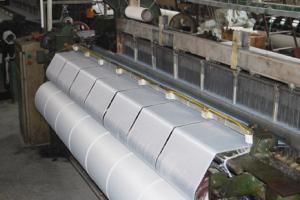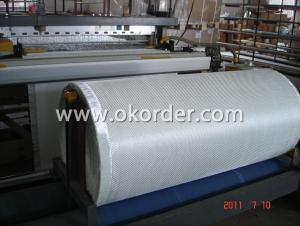Fiberglass Fabrics - High Quality 200g
- Loading Port:
- Shanghai Port
- Payment Terms:
- TT or LC
- Min Order Qty:
- 10000 M2 m²
- Supply Capability:
- 50000000 M2 Per Year m²/month
OKorder Service Pledge
OKorder Financial Service
You Might Also Like
Introduction of High Quality Fiberglass Fabrics 200g:
Fiberglass fabric is weaved of high quality C-glass fibers or E-glass fibers. It is a good construction material with the following excellent properties:
* Dimensional stability
* High Strength
* Fire resistance, High heat resistance
* Good chemical resistance
* Durability
* Forms around complex surface shapes
Application of High Quality Fiberglass Fabrics: 200g
Fiberglass fabrics can be used in a variety of applications, including construction in waterproofing applications for roofing and foundation, wall treatment, pipeline joint wrap.
Package of High Quality Fiberglass Fabrics 200g:
Fiberglass fabric is wound on a paper tube with inner diameters of 50. 8, 76 or 152mm. Each roll is wrapped in a plastic bag, then to be packed in a carton box. The rolls are to be horizontally placed.
Width (cm): 90, 100, 127
Length (m): 100, 200, 300, 400
Storage of High Quality Fiberglass Fabrics 200g:
Store rolls in a cool, dry location.
Protect rolls from weather and other damage.
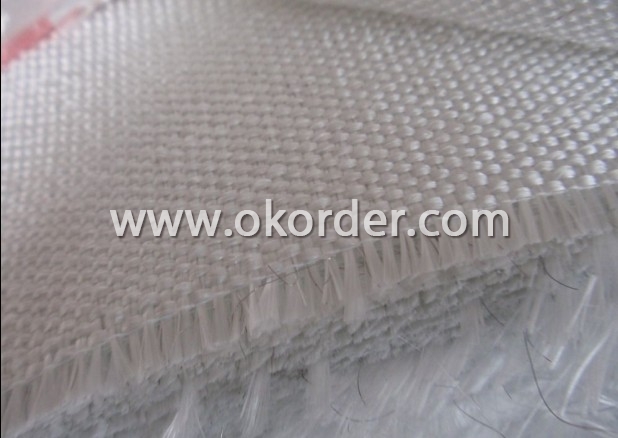
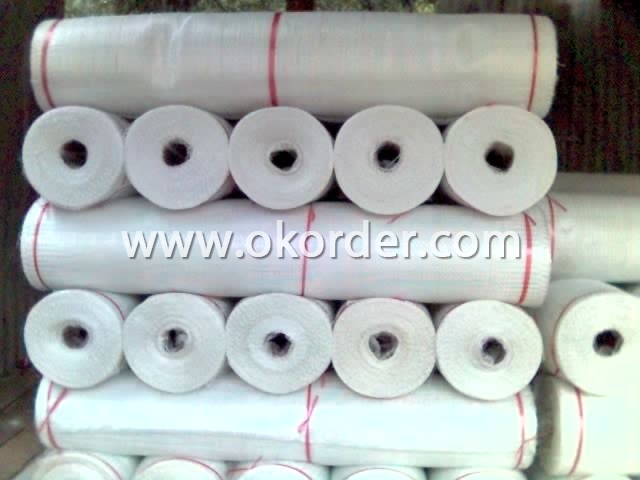
- Q: How does fiberglass fabric perform in extreme temperatures?
- Fiberglass fabric performs exceptionally well in extreme temperatures. It has a high resistance to heat and can withstand both very low and very high temperatures without losing its structural integrity. This makes it suitable for various applications, including insulation, protective clothing, and aerospace components.
- Q: Are fiberglass fabrics resistant to corrosion from chemicals?
- Yes, fiberglass fabrics are generally resistant to corrosion from chemicals. The unique properties of fiberglass, such as high chemical resistance and inertness, make it an ideal material for applications where exposure to harsh chemicals is expected. Fiberglass fabrics are commonly used in industries such as chemical processing, oil and gas, and wastewater treatment, where they are exposed to a wide range of corrosive chemicals. The corrosion resistance of fiberglass fabrics can be attributed to the fact that they are made from glass fibers that are highly resistant to chemical attack. Additionally, fiberglass fabrics can be coated with various protective coatings to enhance their chemical resistance even further. However, it is important to note that the specific chemical resistance of fiberglass fabrics may vary depending on the type and concentration of the chemical. Therefore, it is recommended to consult the manufacturer or supplier for detailed information on the chemical resistance of fiberglass fabrics in specific applications.
- Q: Can fiberglass fabric be used for acoustic insulation?
- Yes, fiberglass fabric can be used for acoustic insulation. Fiberglass fabric is known for its excellent sound-absorbing properties, making it an ideal material for acoustic insulation. It can effectively reduce noise by absorbing sound waves, preventing them from bouncing off hard surfaces and creating echoes or reverberations. Fiberglass fabric is commonly used in various applications such as wall panels, ceiling tiles, and acoustic curtains to improve sound quality and reduce unwanted noise in spaces such as theaters, recording studios, and offices. Additionally, fiberglass fabric is lightweight, durable, and easy to install, making it a popular choice for acoustic insulation solutions.
- Q: Can fiberglass fabric be used for making backpacking or camping gear?
- Yes, fiberglass fabric can be used for making backpacking or camping gear. It is a versatile material that offers durability, strength, and resistance to harsh weather conditions. It can be used for making tents, backpacks, hammocks, sleeping bags, and other outdoor gear. However, it is important to note that fiberglass fabric can be heavier and less breathable compared to other materials, so it may not be the ideal choice for ultralight backpacking or hot weather camping.
- Q: How does fiberglass fabric perform in wind and storm conditions?
- Fiberglass fabric performs exceptionally well in wind and storm conditions. Its inherent strength and flexibility make it highly resistant to damage from strong winds, gusts, and turbulent weather. Additionally, its non-porous nature prevents water absorption, ensuring that it remains stable and unaffected by moisture during storms. These properties, combined with its durability, make fiberglass fabric an excellent choice for applications that require reliable performance in challenging weather conditions.
- Q: Can fiberglass fabric be used for making speaker cones?
- Yes, fiberglass fabric can be used for making speaker cones. Fiberglass is a lightweight, rigid, and durable material that is often used in the construction of speaker cones. It offers excellent strength-to-weight ratio, which is important for maintaining the structural integrity and responsiveness of the cone. Additionally, fiberglass fabric can be molded into various shapes and sizes, allowing manufacturers to create speaker cones with different designs and performance characteristics. The material also has good acoustic properties, which contribute to the overall sound quality produced by the speaker. However, it is worth noting that the specific characteristics and performance of a speaker cone depend on various factors, including the design, materials used, and manufacturing process. Therefore, while fiberglass fabric can be used for making speaker cones, it is just one of many options available to manufacturers.
- Q: What are the different lamination options available for fiberglass fabric?
- Various lamination options are available for fiberglass fabric, depending on specific requirements and applications. Some commonly used options are: 1. Polyester Resin Lamination: This is the most commonly utilized lamination option for fiberglass fabric. It involves applying polyester resin to the fabric, creating a strong and durable bond. It offers good chemical resistance and is suitable for applications requiring high strength. 2. Epoxy Resin Lamination: Epoxy resin lamination provides superior strength and excellent adhesion. It is often employed in high-performance applications that require resistance to harsh environmental conditions. Additionally, epoxy resin offers good chemical and heat resistance. 3. Polyurethane Lamination: Polyurethane lamination offers flexibility and exceptional abrasion resistance. It finds common use in applications that necessitate fabric flexibility and durability, such as inflatable structures or protective clothing. 4. Vinyl Ester Resin Lamination: Vinyl ester resin, which is a hybrid between polyester and epoxy resins, offers high strength and excellent corrosion resistance. It is commonly employed in applications exposed to harsh chemicals or environments, such as chemical storage tanks or marine applications. 5. Thermoplastic Lamination: Thermoplastic lamination involves bonding a thermoplastic film onto the fiberglass fabric using heat and pressure. This option provides good chemical resistance and is often used in applications that require waterproofing or resistance to environmental elements. When selecting the appropriate lamination option, it is crucial to consider the specific requirements and intended use of the fiberglass fabric. Factors such as strength, flexibility, chemical resistance, and environmental conditions will help determine the most suitable choice.
- Q: Can fiberglass fabric be used for making car seat covers?
- Yes, fiberglass fabric can be used for making car seat covers. Fiberglass fabric is known for its durability, strength, and resistance to heat, making it a suitable material for car seat covers. It is also lightweight and easy to work with, making it a popular choice for automotive applications. Additionally, fiberglass fabric is resistant to staining and can be easily cleaned, which is essential for car seat covers that are prone to spills and dirt. However, it is important to note that fiberglass fabric can be less comfortable compared to other materials, so additional padding or cushioning may be required to provide a comfortable seating experience.
- Q: Can fiberglass fabric be used for reinforcement in pharmaceutical tanks?
- Certainly! Fiberglass fabric proves to be an effective reinforcement option for pharmaceutical tanks. Renowned for its impressive strength-to-weight ratio and exceptional resistance to corrosion, chemicals, and extreme temperatures, fiberglass fabric emerges as an optimal material choice for fortifying tanks used in the pharmaceutical sector. Given that these tanks frequently encounter various chemicals and substances, these inherent properties of fiberglass fabric enable it to provide structural support, enhance tank durability and longevity, and ensure compliance with required safety standards. Furthermore, the lightweight nature of fiberglass fabric simplifies its handling and installation in tank applications. In conclusion, employing fiberglass fabric as a reinforcement solution in pharmaceutical tanks guarantees a dependable and efficient choice.
- Q: How does fiberglass fabric perform in cryogenic temperatures?
- Due to its inherent properties, fiberglass fabric is able to perform exceptionally well in cryogenic temperatures. Cryogenic temperatures, which are defined as extremely low temperatures below -150°C (-238°F), are commonly encountered in applications such as aerospace, medical, and scientific research. One of the main reasons for the effectiveness of fiberglass fabric in cryogenic temperatures is its remarkable thermal insulation properties. This allows the fabric to effectively endure and safeguard against extreme fluctuations in temperature. Consequently, the structural integrity and performance of the fiberglass fabric remain intact even when subjected to cryogenic conditions. Moreover, fiberglass fabric exhibits a low level of thermal conductivity, meaning that it does not readily transfer heat. This characteristic is of utmost importance in cryogenic applications as it helps to minimize the transfer of heat between the extremely cold environment and the surrounding components. In addition to its exceptional thermal properties, fiberglass fabric also possesses high tensile strength, durability, and resistance to chemical corrosion. These qualities make it well-suited for use in cryogenic environments, where materials must endure extreme conditions and maintain their mechanical properties over an extended period of time. To summarize, fiberglass fabric offers dependable performance and protection in cryogenic temperatures, thus making it a favored choice in various industries that require materials capable of withstanding such harsh conditions.
Send your message to us
Fiberglass Fabrics - High Quality 200g
- Loading Port:
- Shanghai Port
- Payment Terms:
- TT or LC
- Min Order Qty:
- 10000 M2 m²
- Supply Capability:
- 50000000 M2 Per Year m²/month
OKorder Service Pledge
OKorder Financial Service
Similar products
Hot products
Hot Searches
Related keywords
